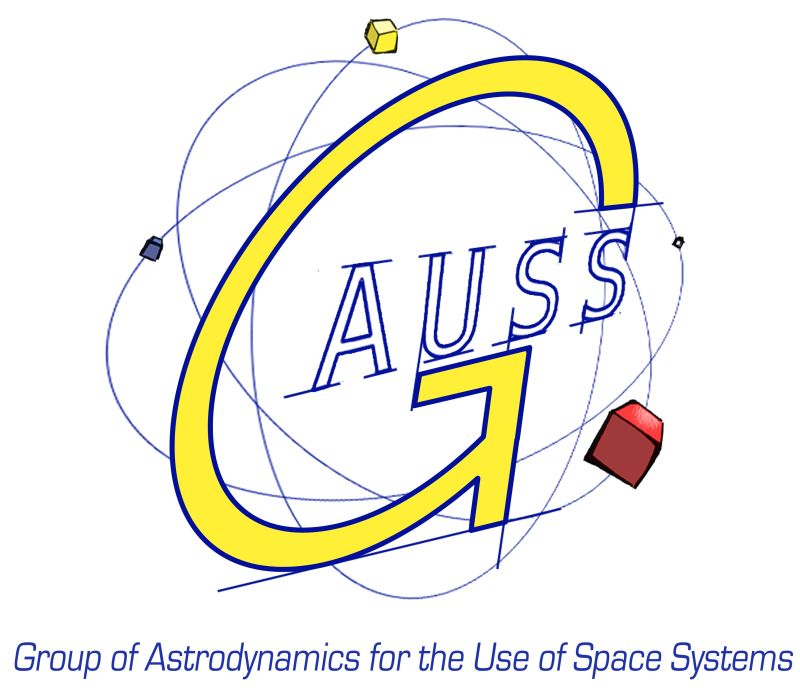
Back to selection

Supplier
GAUSS Srl.
G.A.U.S.S. Srl.
Via Sambuca Pistoiese 70
I-00138 Rome
Italy
GAUSS Srl: Pioneering Small Satellite Development and Deployment
GAUSS Srl (Group of Astrodynamics for the Use of Space Systems) is an Italian private aerospace company specializing in the design, development, and launch of small satellites, including CubeSats and PocketQubes. Based in Rome, GAUSS has successfully launched multiple Micro-satellites, including UniSat-5, UniSat-6, and UniSat-7, serving as a launch provider for universities and research institutions worldwide.
Innovative Satellite Solutions
GAUSS designs and manufactures microsatellites, acting as a launch platform for third-party payloads. The company’s expertise includes structural design, subsystem integration, payload development, and ground operations. Through its UniSat program, GAUSS provides cost-effective access to space for educational and commercial customers.
GAUSS developed the GPOD CubeSat Deployer, a versatile deployment system available in multiple configurations (1U, 2U, 3U, 3U+, and 6U). GPOD enables flexible satellite deployment from rockets or larger satellites, making it the preferred choice for UniSat missions.
Legacy and Expertise
Founded in 2012, GAUSS evolved from a research group at the University of Rome, led by Professor Filippo Graziani, a distinguished member of the International Academy of Astronautics (IAA). The company integrates over 30 years of academic and industry expertise in astrodynamics and space system development. GAUSS collaborates with leading aerospace organizations, including the Italian Space Agency (ASI) and the Sapienza University of Rome.
Since the early 1990’s, GAUSS has been involved in designing, testing, integrating, and launching small satellites. The first Micro-satellite, UniSat-1, was launched in 2000, marking the beginning of a series of successful space missions.
Research and Technological Advancements
GAUSS is actively engaged in astronautics and aerospace research, focusing on:
Space Debris Observation: The company monitors space debris for orbital analysis, lifespan prediction, and environmental assessments. In 2018, GAUSS captured an astrographic image of the Tiangong-1 space station’s re-entry, which gained significant media attention.
Biomedical Research in Space: Since 2009, GAUSS has conducted biomedical experiments in space, including studies aboard the International Space Station’s Kibo module and NASA’s Space Shuttle in 2011.
Small Satellite Development: GAUSS integrates its subsystems into third-party satellites and continuously advances satellite technology in its research labs.
The UniSat Program: A History of Success
The UniSat program, initiated at the Sapienza University of Rome, aims to promote commercial technology applications in aerospace. Each UniSat mission tests new technologies in orbit, offering cost-effective solutions for small satellite deployment.
Key UniSat Missions:
UniSat-1 (2000): Launched aboard a Dnepr rocket, focusing on technology validation.
UniSat-2 (2002): Integrated advancements from UniSat-1’s tested hardware.
UniSat-3 (2004): Featured a magnetometer and high-efficiency solar cells, deploying multiple payloads.
UniSat-4 (2006): A record-breaking university satellite cluster launch, which failed due to a rocket anomaly.
UniSat-5 (2013): The first mission to deploy CubeSats and PocketQubes in orbit.
UniSat-6 (2014): Released four CubeSats into Sun-Synchronous Orbit.
UniSat-7 (2021): Launched aboard the CAS500-1 mission, deploying five satellites and testing new propulsion and IoT communication systems.
Commitment to Space Exploration and Education
GAUSS remains committed to advancing space technology through innovation, research, and educational initiatives. With a strong legacy in small satellite development and deployment, GAUSS continues to contribute to global aerospace advancements while supporting new generations of engineers and researchers in space exploration.
All trademarks, logos and images mentioned and showed on this page are property of their respective owners.
Resources
www.gaussteam.com
www.italianspaceindustry.com
www.gklaunch.ru
www.f6s.com
www.space.skyrocket.de
www.wikipedia.org
www.pe0sat.vgnet.nl
www.amsat.org

Supplier
GAUSS Srl.
G.A.U.S.S. Srl.
Via Sambuca Pistoiese 70
I-00138 Rome
Italy
Smallsats launched by GAUSS Srl.
| Smallsat | Country | |||
| UniSat-5 | Dnepr / Cluster Mission 2013 | GAUSS Srl. |  | Technology |
| UniSat-4 | Dnepr / Cluster Mission 2006 | GAUSS Srl. |  | Technology |
| UniSat-3 | Dnepr / Cluster Mission 2004 | GAUSS Srl. |  | Technology |
| UniSat-2 | Dnepr / Cluster Mission 2002 | GAUSS Srl. |  | Technology |
| UniSat | Dnepr / Cluster Mission 2000 | GAUSS Srl. |  | Technology |
| EduSAT | Dnepr / Cluster Mission 2011 | GAUSS Srl. |  | Technology |
| UniSat-6 | - | GAUSS Srl. |  | Technology |
| TuPOD | HTV-6 (Kounotori-6) | GAUSS Srl. |  | Technology |